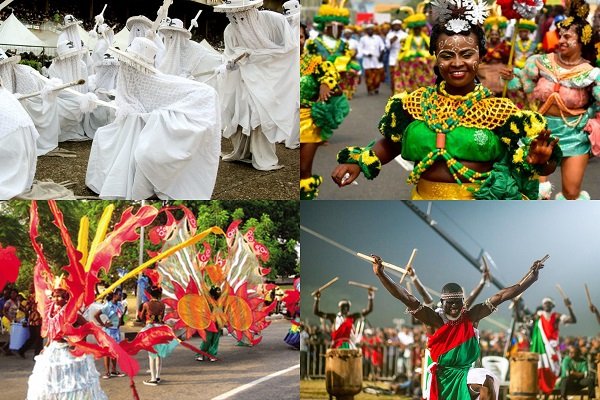Nigeria is a nation known for its vibrant and diverse cultural heritage. With over 250 ethnic groups, each bringing its unique traditions, languages, and festivities, Nigeria is a treasure trove of cultural experiences. In this article, we’ll explore the cultural festivals in Nigeria, discussing into the most famous and fascinating celebrations across the country.
The Magic of Nigerian Festivals
Nigeria’s festivals are a reflection of its rich cultural diversity. These celebrations offer a glimpse into the traditions, beliefs, and ways of life of various ethnic groups. From north to south and east to west, there is always a festival happening somewhere in Nigeria. Let’s journey through some of the most iconic cultural festivals in Nigeria.
Osun-Osogbo Festival
Where: Osogbo, Osun State
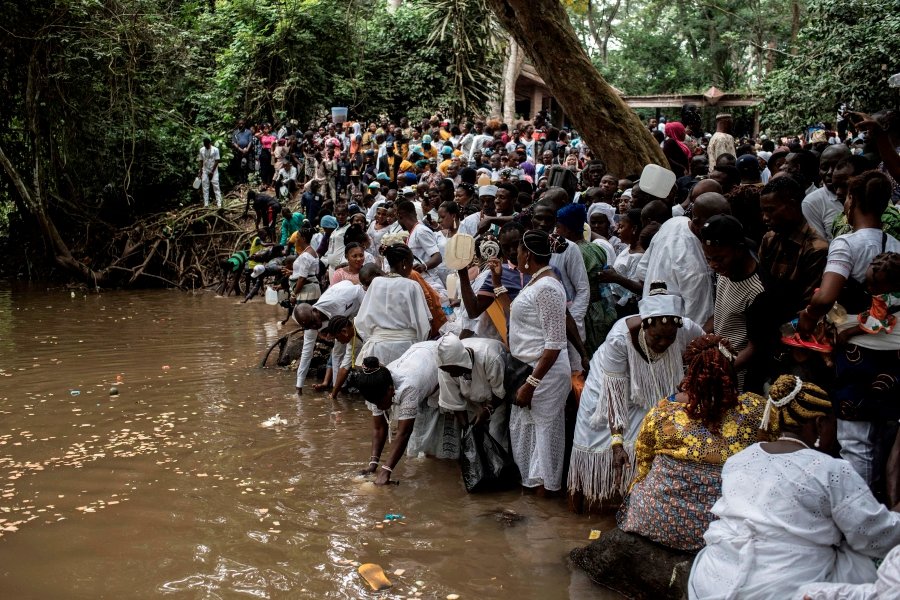
The Osun-Osogbo Festival is a two-week-long annual celebration held in honor of the river goddess Osun in Osogbo, Osun State. This festival, recognized by UNESCO as a World Heritage event, attracts people from all over the world. The festival is a vibrant blend of traditional rites, music, dance, and art exhibitions, culminating in a grand finale at the Sacred Grove, where devotees offer sacrifices and prayers to the goddess.
Durbar Festival
Where: Kano, Katsina, Kaduna, and other northern states
The Durbar Festival is a royal celebration that marks the end of Ramadan and the beginning of the Eid al-Fitr and Eid al-Adha festivals. Originating in the northern regions of Nigeria, this festival features a grand procession of horsemen, drummers, and traditional dancers, all dressed in colorful regalia. The Emir’s palace is the focal point, where various cultural displays and homage-paying ceremonies take place.
Eyo Festival
Where: Lagos Island, Lagos State
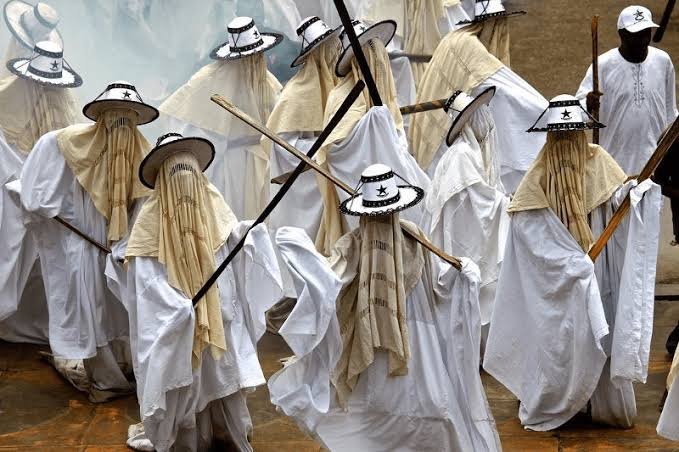
The Eyo Festival, also known as the Adamu Orisha Play, is one of the most iconic cultural festivals in Nigeria. Held in Lagos Island, this festival features a parade of masqueraders called “Eyo,” who are dressed in white robes and hats, and carry staffs. The festival is believed to be the precursor of the modern-day Brazilian Carnival and is held in honor of the king or a notable Lagosian who has passed away. The streets of Lagos Island come alive with music, dance, and traditional rites, making it a must-see event.
New Yam Festival
Where: Igbo communities across Nigeria
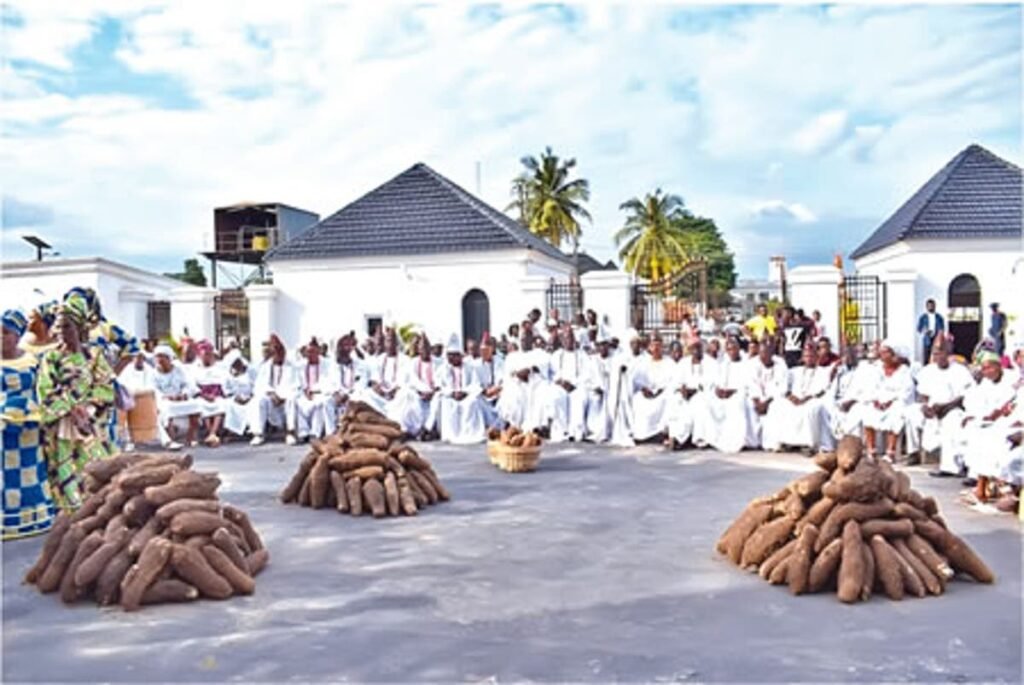
The New Yam Festival, known as Iri Ji or Iwa Ji, is a significant event in Igbo culture. It is a time to give thanks for the harvest and to mark the beginning of a new farming season. The festival is characterized by feasting, dancing, and cultural displays. Yams, being the staple crop of the Igbo people, are the centerpiece of this celebration, with various yam dishes prepared and shared among the community.
Argungu Fishing Festival
Where: Argungu, Kebbi State
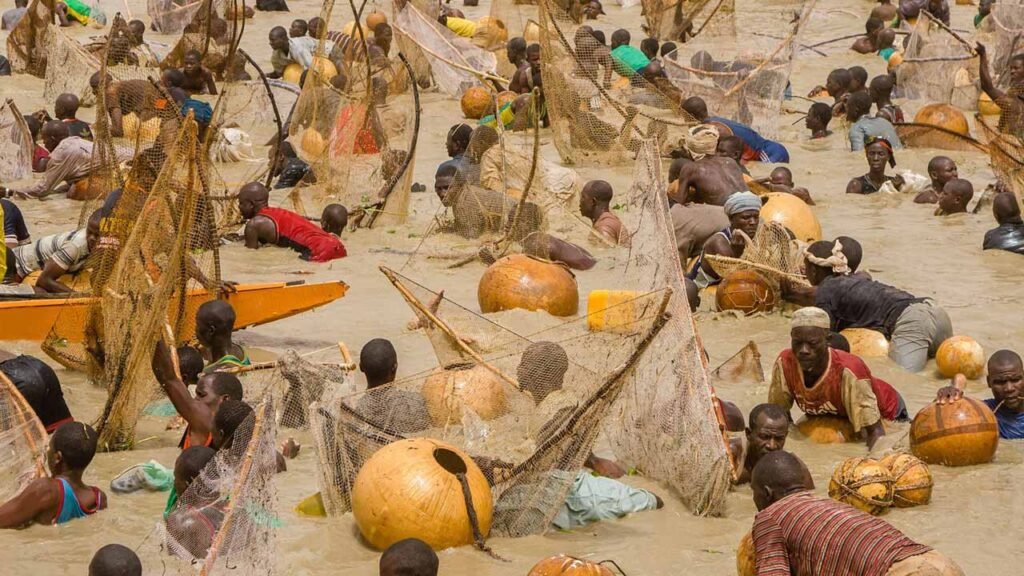
The Argungu Fishing Festival is a unique and exciting event held annually in Argungu, Kebbi State. This four-day festival is a competition where fishermen use traditional methods to catch the biggest fish in the Mata Fada River. The festival also features cultural displays, music, dance, and local wrestling competitions. It is a celebration of the rich cultural heritage and fishing traditions of the Kebbi people.
Calabar Carnival
Where: Calabar, Cross River State
Dubbed “Africa’s Biggest Street Party,” the Calabar Carnival is a month-long celebration held in December in Calabar, Cross River State. The carnival features colorful parades, music, dance, and cultural displays. Participants from different parts of Nigeria and around the world come to showcase their talents and creativity. The Calabar Carnival is a melting pot of cultures and a fantastic way to experience Nigeria’s festive spirit.
Ofala Festival
Where: Onitsha, Anambra State
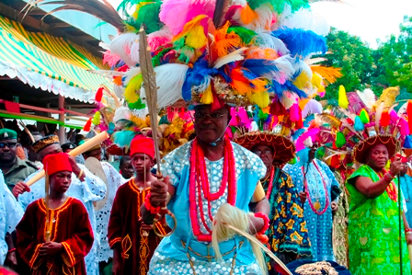
The Ofala Festival is an annual celebration held in Onitsha, Anambra State, to honor the traditional ruler, the Obi of Onitsha. The festival, which dates back centuries, features a grand procession, traditional dances, and music. It is a time for the Obi to bless the community and for the people to show their loyalty and respect to their ruler. The festival also serves as an opportunity for the community to come together and celebrate their heritage.
Sango Festival
Where: Oyo, Oyo State
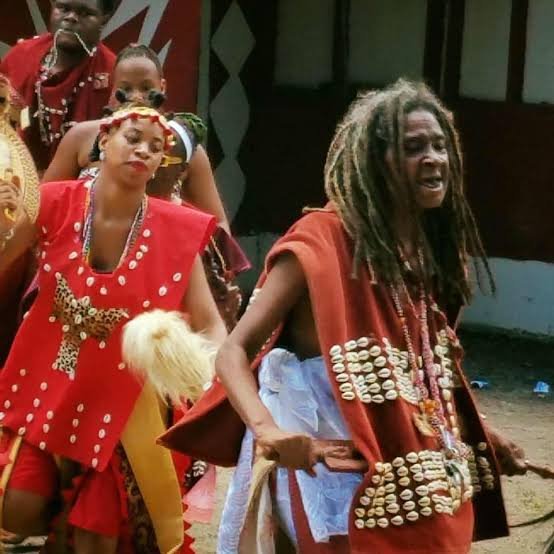
The Sango Festival, held in Oyo, Oyo State, is a celebration of Sango, the god of thunder and lightning in Yoruba mythology. The festival is marked by various traditional rites, drumming, dancing, and masquerade performances. It is a vibrant and energetic celebration that showcases the rich cultural heritage of the Yoruba people. The grand finale of the festival is the procession to the Sango shrine, where devotees offer prayers and sacrifices.
Igue Festival
Where: Benin City, Edo State
The Igue Festival is a royal celebration held in Benin City, Edo State, to mark the end of the Benin traditional year and the beginning of a new one. The festival, which dates back to the reign of Oba Ewuare the Great, features various ceremonies, including the blessing of the Oba and the people, cultural displays, and traditional dances. It is a time for the people of Benin to give thanks for the past year and to seek blessings for the coming year.
Conclusion
Nigeria’s cultural festivals are a testament to the country’s rich and diverse heritage. These celebrations offer a unique opportunity to experience the traditions, music, dance, and cuisine of various ethnic groups. Whether you are a local or a tourist, attending these festivals is a fantastic way to connect with Nigeria’s cultural roots and to create lasting memories.
Frequently Asked Questions
Q: What are some of the most popular cultural festivals in Nigeria?
A: Some of the most popular cultural festivals in Nigeria include the Osun-Osogbo Festival, Durbar Festival, Eyo Festival, New Yam Festival, Argungu Fishing Festival, Calabar Carnival, Ofala Festival, Sango Festival, and Igue Festival.
Q: When is the best time to visit Nigeria to experience these festivals?
A: The best time to visit Nigeria to experience these festivals is during the specific months when they are held. For example, the Osun-Osogbo Festival is held in August, the Durbar Festival is held at the end of Ramadan and during Eid al-Fitr and Eid al-Adha, the Eyo Festival is held as determined by the traditional council of Lagos, and the Calabar Carnival is held in December.
Q: Are these festivals open to tourists?
A: Yes, most of these festivals are open to tourists, and they offer a fantastic opportunity to experience the rich cultural heritage of Nigeria. However, it is essential to respect local customs and traditions while attending these festivals.
Q: What should I wear to these festivals?
A: It is advisable to wear comfortable clothing and footwear, as these festivals often involve a lot of walking and standing. Traditional attire is also a great way to immerse yourself in the cultural experience, but it is not mandatory.
Q: Are there any safety concerns when attending these festivals?
A: While these festivals are generally safe, it is essential to stay vigilant and follow local guidelines. It is also advisable to attend these festivals with a local guide or a group, especially if you are unfamiliar with the area.

